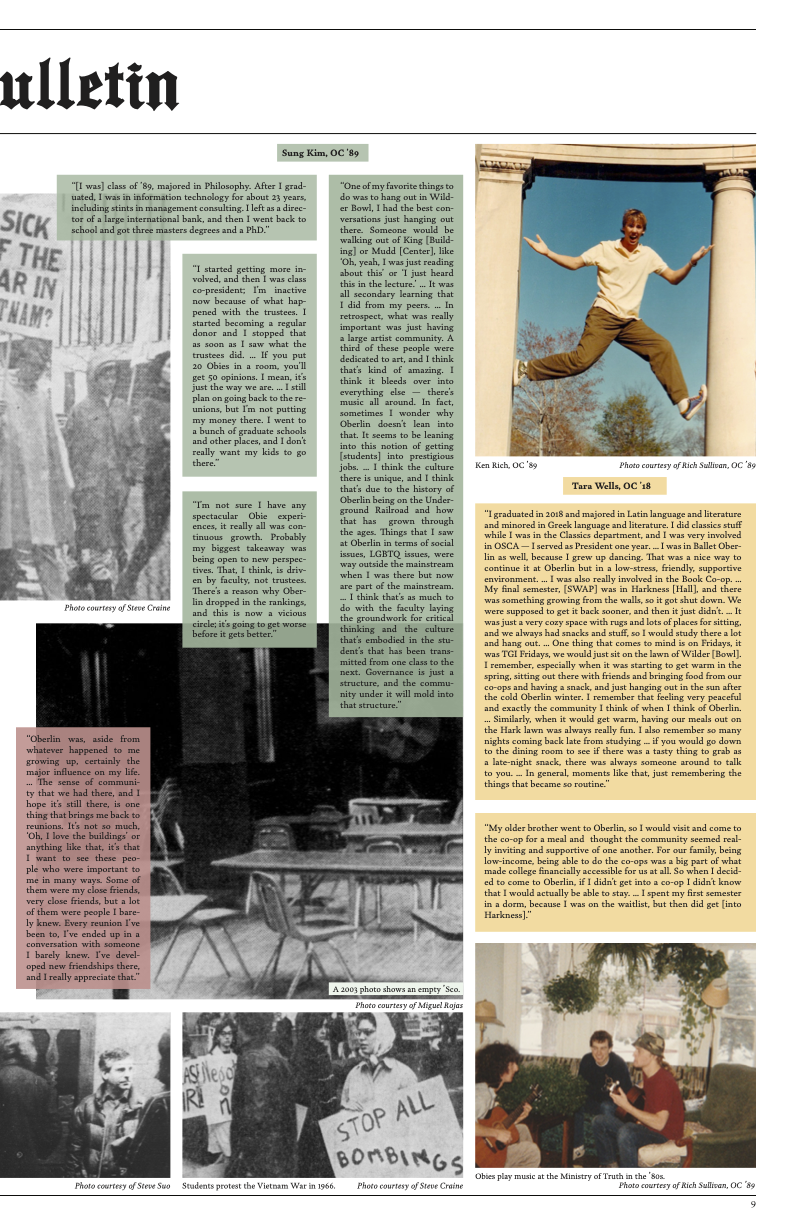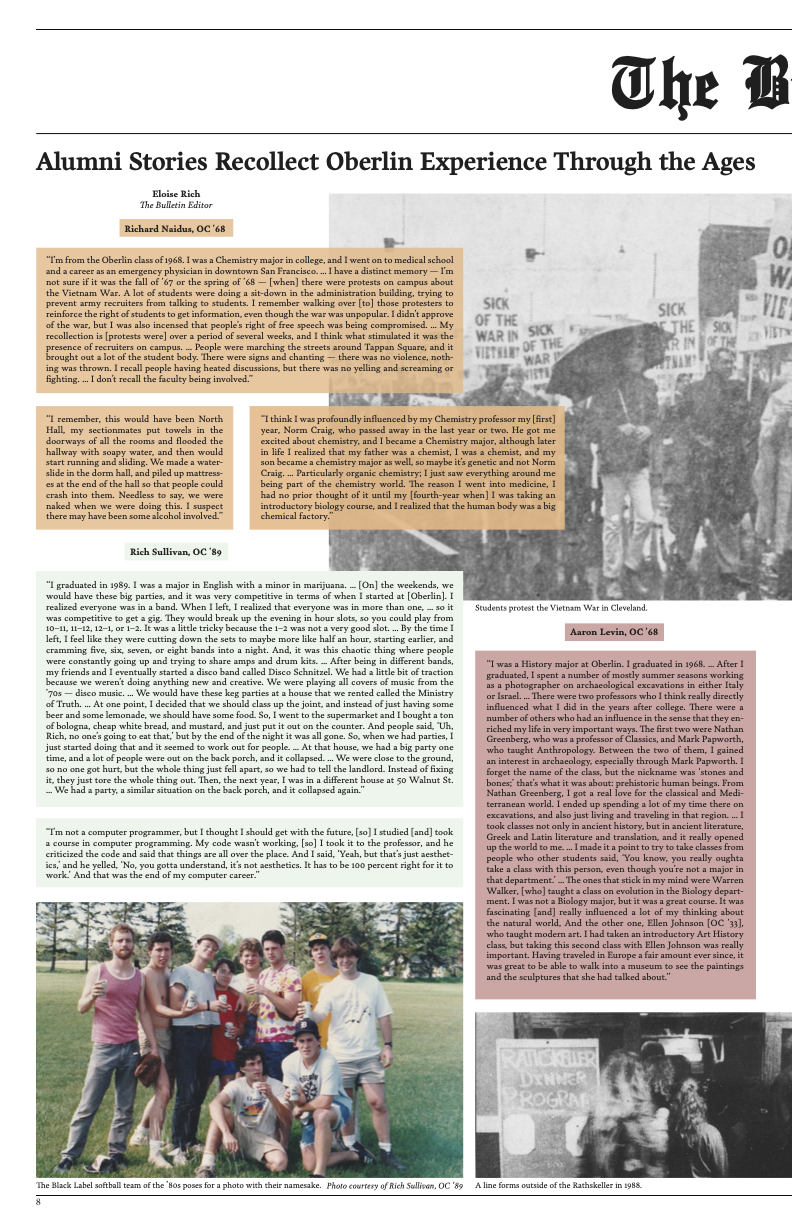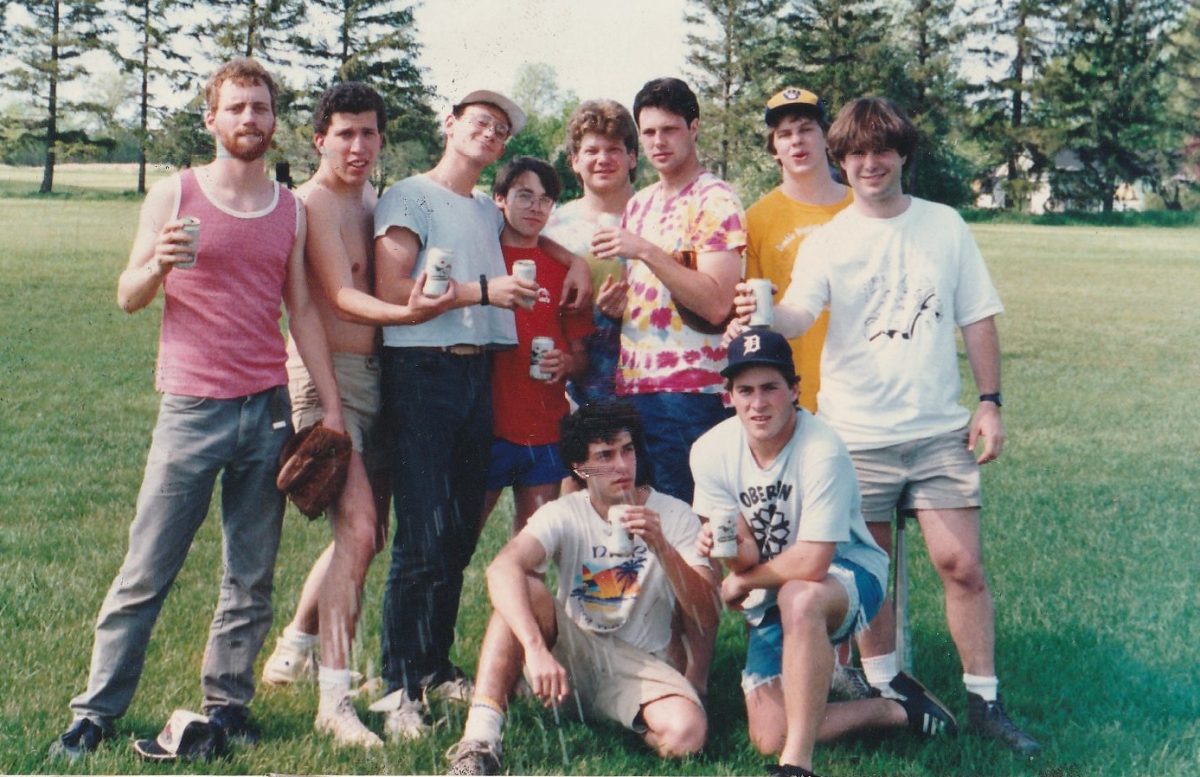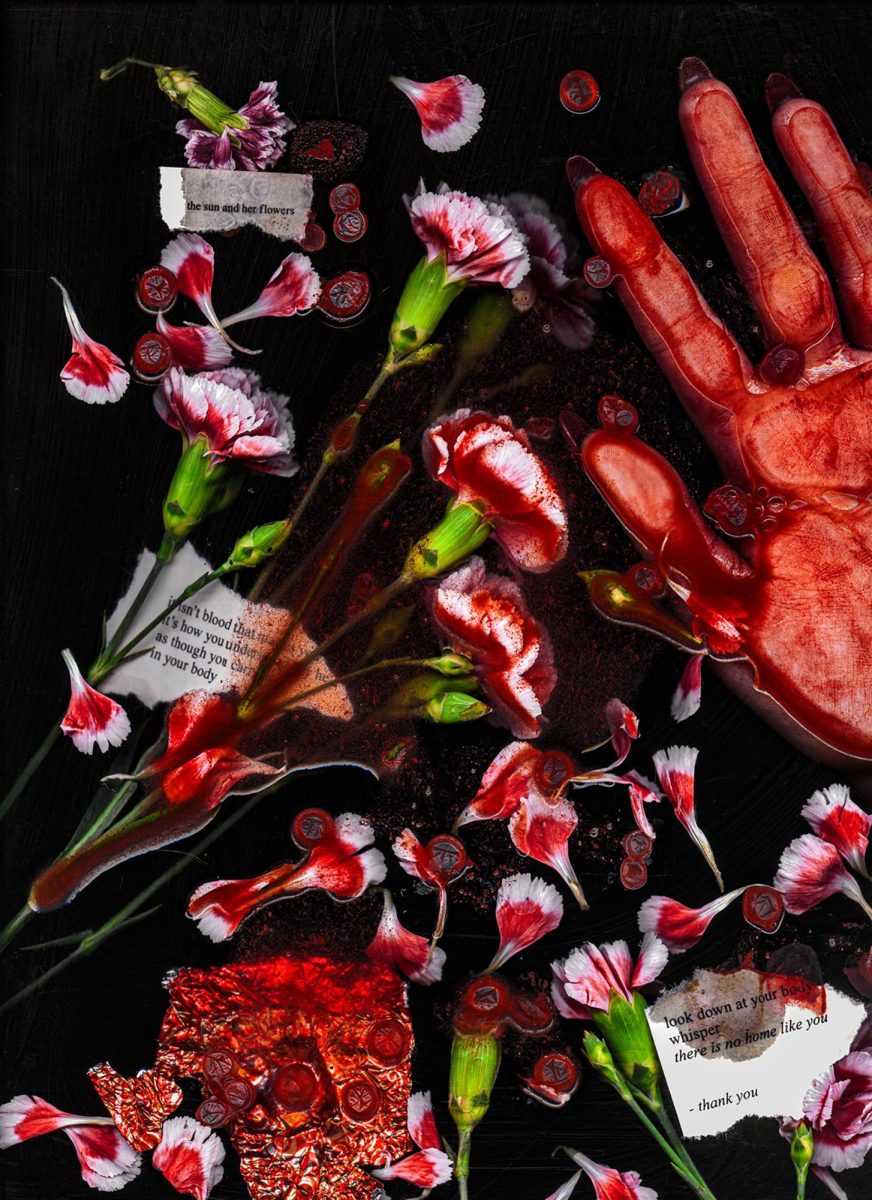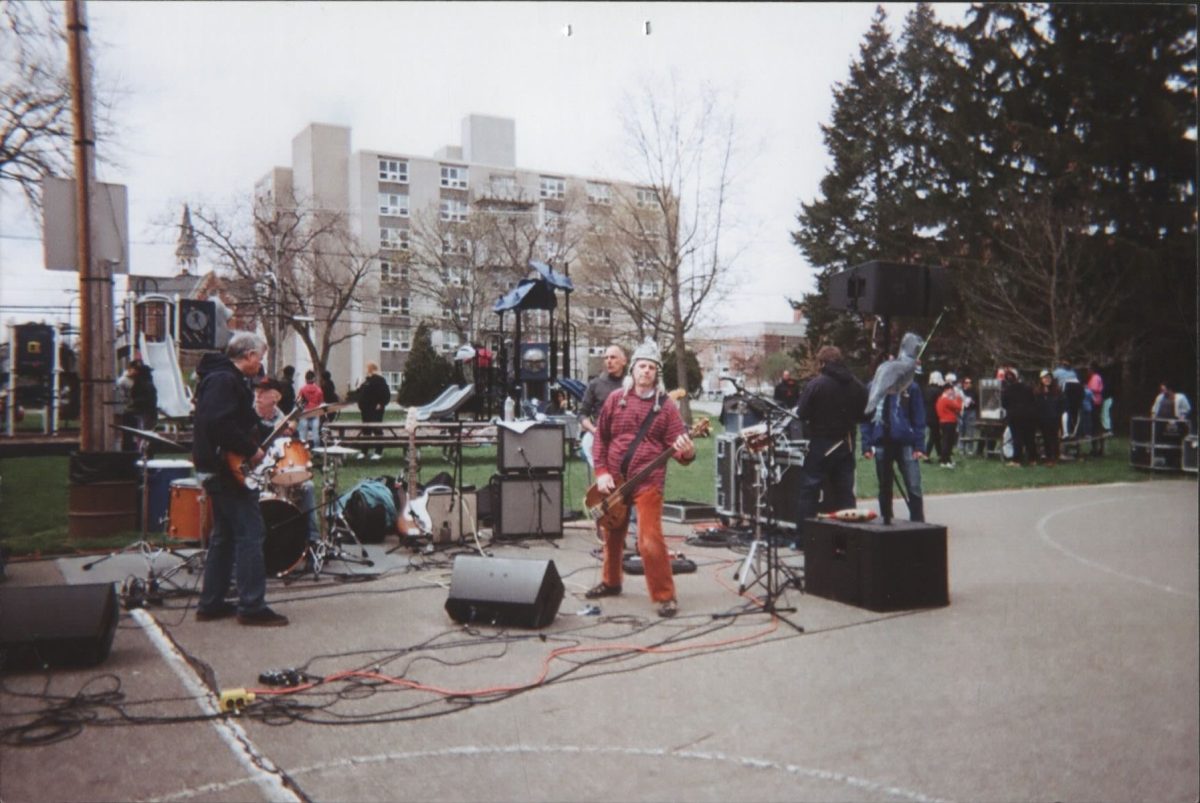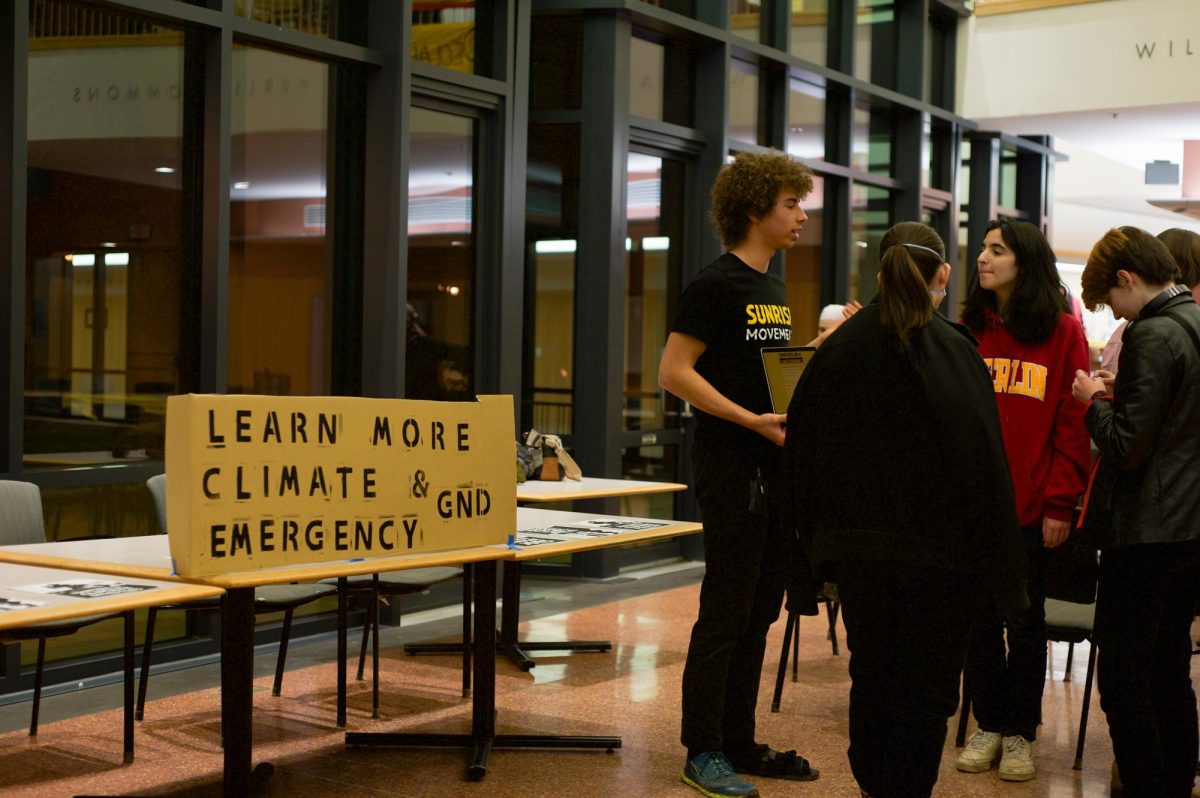I’m from the Oberlin class of 1968. I was a Chemistry major in college, and I went on to medical school and a career as an emergency physician in downtown San Francisco. … I have a distinct memory — I’m not sure if it was the fall of ’67 or the spring of ’68 — [when] there were protests on campus about the Vietnam War. A lot of students were doing a sit-down in the administration building, trying to prevent army recruiters from talking to students. I remember walking over [to] those protesters to reinforce the right of students to get information, even though the war was unpopular. I didn’t approve of the war, but I was also incensed that people’s right of free speech was being compromised. … My recollection is [protests were] over a period of several weeks, and I think what stimulated it was the presence of recruiters on campus. … People were marching the streets around Tappan Square, and it brought out a lot of the student body. There were signs and chanting — there was no violence, nothing was thrown. I recall people having heated discussions, but there was no yelling and screaming or fighting. … I don’t recall the faculty being involved.
— Richard Naidus, OC '68
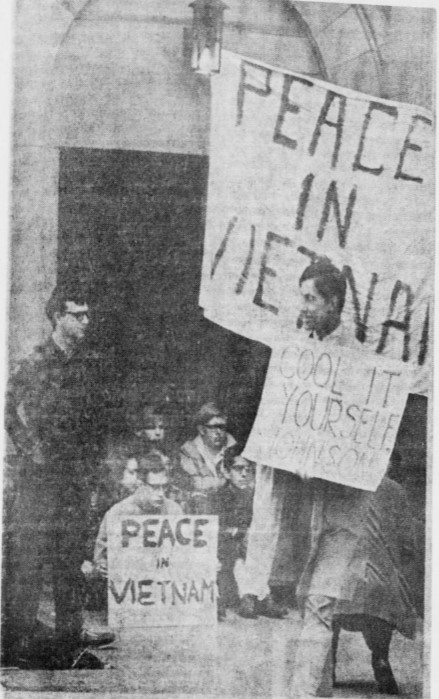
I remember, this would have been North Hall, my sectionmates put towels in the doorways of all the rooms and flooded the hallway with soapy water, and then would start running and sliding. We made a water- slide in the dorm hall, and piled up mattress- es at the end of the hall so that people could crash into them. Needless to say, we were naked when we were doing this. I suspect there may have been some alcohol involved.
— Richard Naidus, OC '68
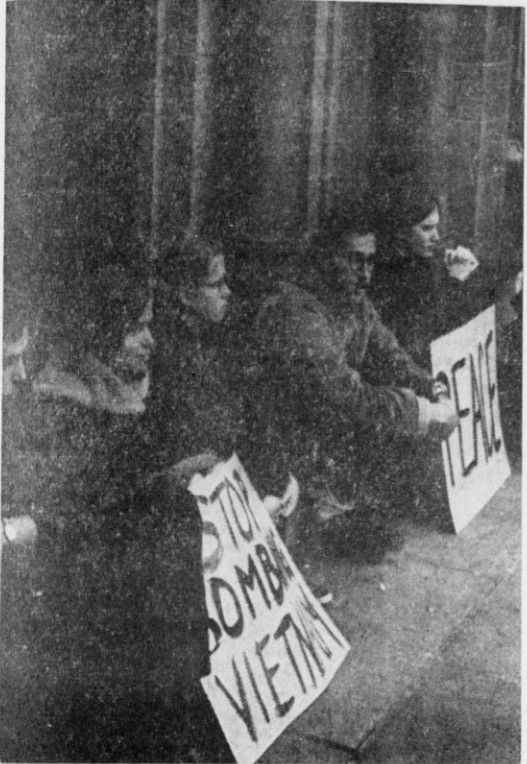
I think I was profoundly influenced by my Chemistry professor my [first] year, Norm Craig, who passed away in the last year or two. He got me excited about chemistry, and I became a Chemistry major, although later in life I realized that my father was a chemist, I was a chemist, and my son became a chemistry major as well, so maybe it’s genetic and not Norm Craig. … Particularly organic chemistry; I just saw everything around me being part of the chemistry world. The reason I went into medicine, I had no prior thought of it until my [fourth-year when] I was taking an introductory biology course, and I realized that the human body was a big chemical factory.
— Richard Naidus, OC '68
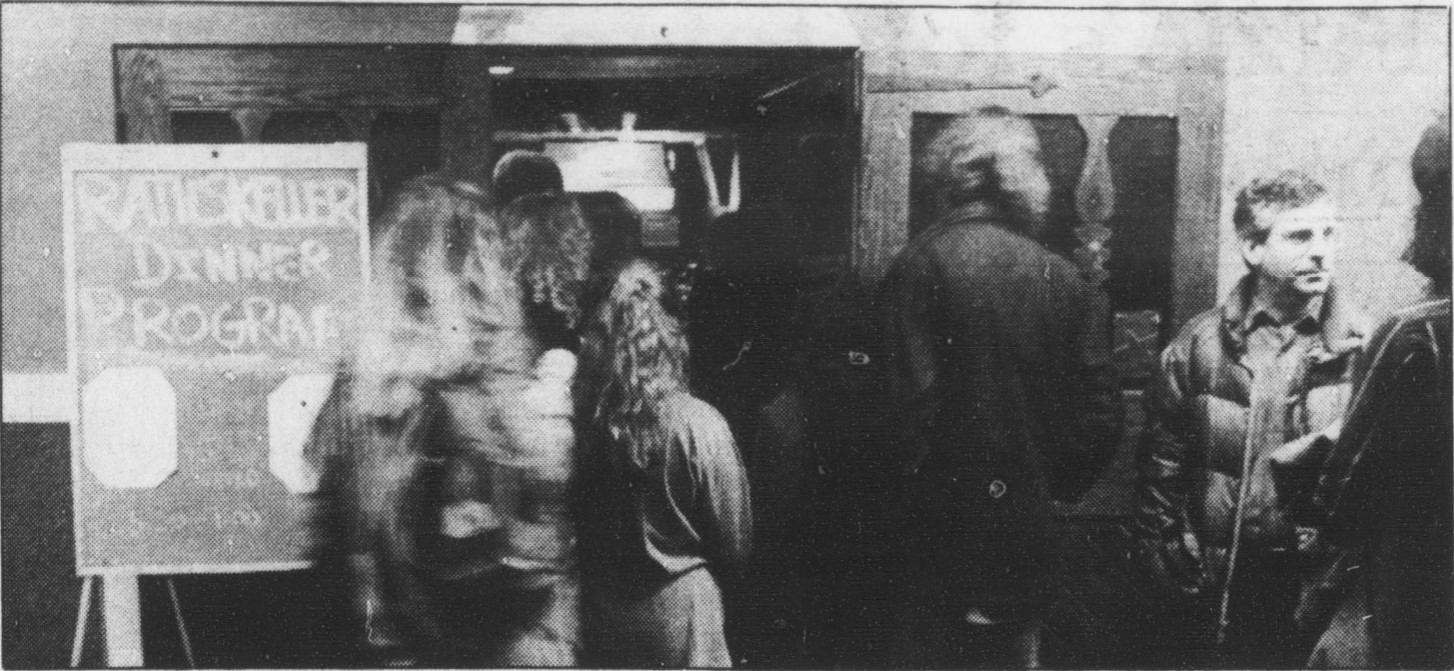
I graduated in 1989. I was a major in English with a minor in marijuana. … [On] the weekends, we would have these big parties, and it was very competitive in terms of when I started at [Oberlin]. I realized everyone was in a band. When I left, I realized that everyone was in more than one, … so it was competitive to get a gig. They would break up the evening in hour slots, so you could play from 10–11, 11–12, 12–1, or 1–2. It was a little tricky because the 1–2 was not a very good slot. … By the time I left, I feel like they were cutting down the sets to maybe more like half an hour, starting earlier, and cramming five, six, seven, or eight bands into a night. And, it was this chaotic thing where people were constantly going up and trying to share amps and drum kits. … After being in different bands, my friends and I eventually started a disco band called Disco Schnitzel. We had a little bit of traction because we weren’t doing anything new and creative. We were playing all covers of music from the ’70s — disco music. … We would have these keg parties at a house that we rented called the Ministry of Truth. … At one point, I decided that we should class up the joint, and instead of just having some beer and some lemonade, we should have some food. So, I went to the supermarket and I bought a ton of bologna, cheap white bread, and mustard, and just put it out on the counter. And people said, ‘Uh, Rich, no one’s going to eat that,’ but by the end of the night it was all gone. So, when we had parties, I just started doing that and it seemed to work out for people. … At that house, we had a big party one time, and a lot of people were out on the back porch, and it collapsed. … We were close to the ground, so no one got hurt, but the whole thing just fell apart, so we had to tell the landlord. Instead of fixing it, they just tore the whole thing out. Then, the next year, I was in a different house at 50 Walnut St. … We had a party, a similar situation on the back porch, and it collapsed again.
— Rich Sullivan, OC '89

I’m not a computer programmer, but I thought I should get with the future, [so] I studied [and] took a course in computer programming. My code wasn’t working, [so] I took it to the professor, and he criticized the code and said that things are all over the place. And I said, ‘Yeah, but that’s just aesthetics,’ and he yelled, ‘No, you gotta understand, it’s not aesthetics. It has to be 100 percent right for it to work.’ And that was the end of my computer career.
— Rich Sullivan, OC '89
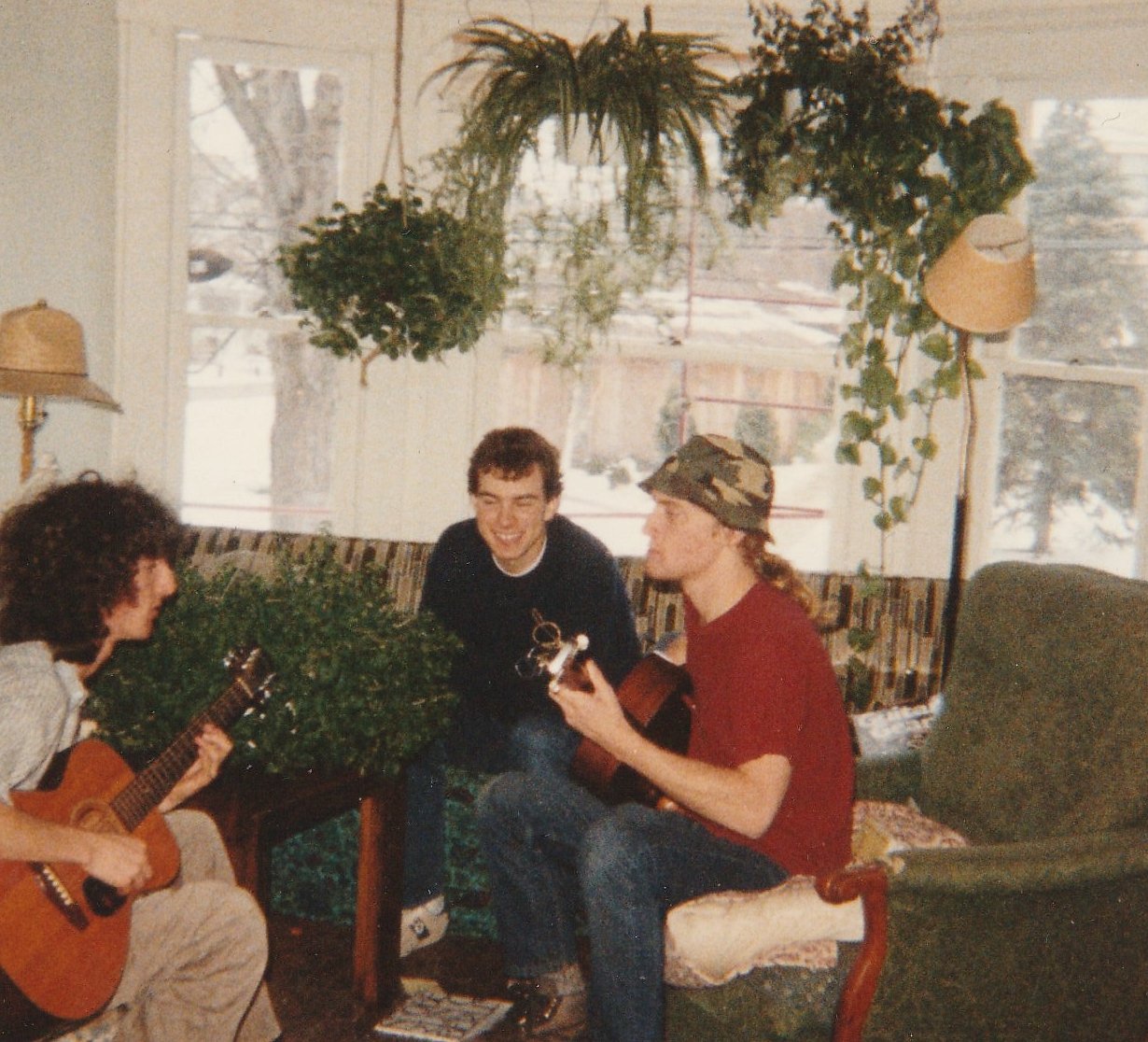
I was a History major at Oberlin. I graduated in 1968. … After I graduated, I spent a number of mostly summer seasons working as a photographer on archaeological excavations in either Italy or Israel. … There were two professors who I think really directly influenced what I did in the years after college. There were a number of others who had an influence in the sense that they enriched my life in very important ways. The first two were Nathan Greenberg, who was a professor of Classics, and Mark Papworth, who taught Anthropology. Between the two of them, I gained an interest in archaeology, especially through Mark Papworth. I forget the name of the class, but the nickname was ‘stones and bones;’ that’s what it was about: prehistoric human beings. From Nathan Greenberg, I got a real love for the classical and Mediterranean world. I ended up spending a lot of my time there on excavations, and also just living and traveling in that region. … I took classes not only in ancient history, but in ancient literature, Greek and Latin literature and translation, and it really opened up the world to me. … I made it a point to try to take classes from people who other students said, ‘You know, you really oughta take a class with this person, even though you’re not a major in that department.’ … The ones that stick in my mind were Warren Walker, [who] taught a class on evolution in the Biology department. I was not a Biology major, but it was a great course. It was fascinating [and] really influenced a lot of my thinking about the natural world, And the other one, Ellen Johnson [OC ’33], who taught modern art. I had taken an introductory Art History class, but taking this second class with Ellen Johnson was really important. Having traveled in Europe a fair amount ever since, it was great to be able to walk into a museum to see the paintings and the sculptures that she had talked about.
— Aaron Levin, OC ’68
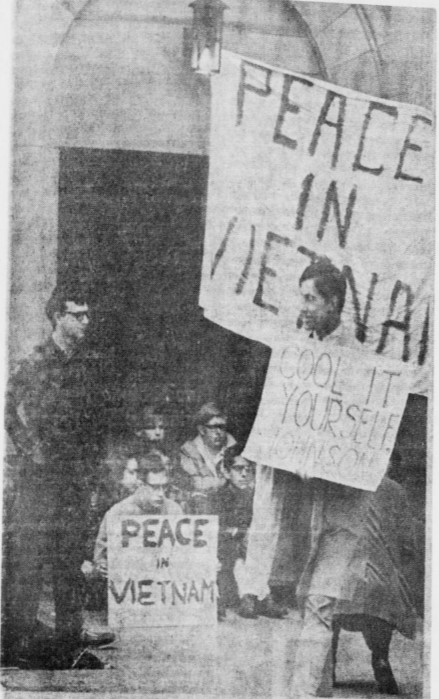
Oberlin was, aside from whatever happened to me growing up, certainly the major influence on my life. … The sense of community that we had there, and I hope it’s still there, is one thing that brings me back to reunions. It’s not so much, ‘Oh, I love the buildings’ or anything like that, it’s that I want to see these people who were important to me in many ways. Some of them were my close friends, very close friends, but a lot of them were people I barely knew. Every reunion I’ve been to, I’ve ended up in a conversation with someone I barely knew. I’ve developed new friendships there, and I really appreciate that.
— Aaron Levin, OC '68
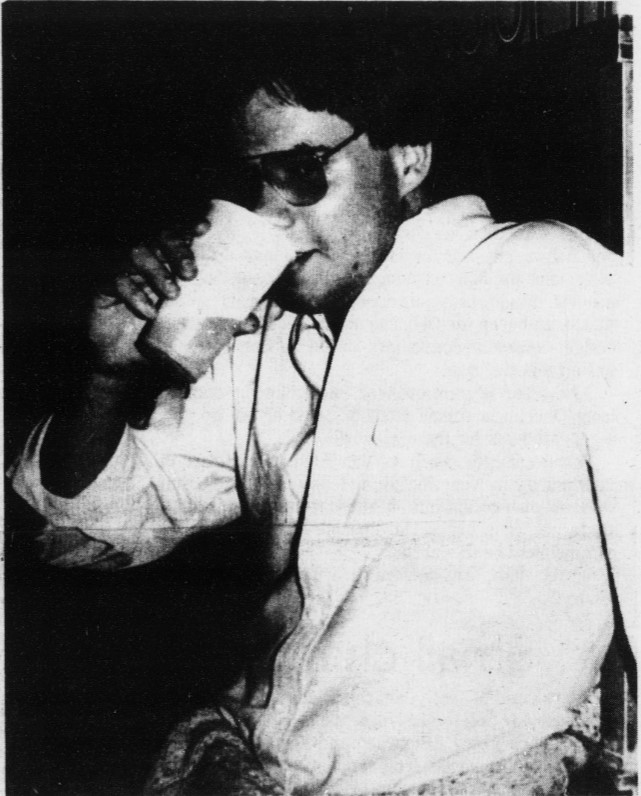
[I was] class of ’89, majored in Philosophy. After I graduated, I was in information technology for about 23 years, including stints in management consulting. I left as a director of a large international bank, and then I went back to school and got three masters degrees and a PhD.
— Sung Kim, OC '89
I started getting more involved, and then I was class co-president; I’m inactive now because of what happened with the trustees. I started becoming a regular donor and I stopped that as soon as I saw what the trustees did. … If you put 20 Obies in a room, you’ll get 50 opinions. I mean, it’s just the way we are. … I still plan on going back to the reunions, but I’m not putting my money there. I went to a bunch of graduate schools and other places, and I don’t really want my kids to go there.
— Sung Kim, OC '89
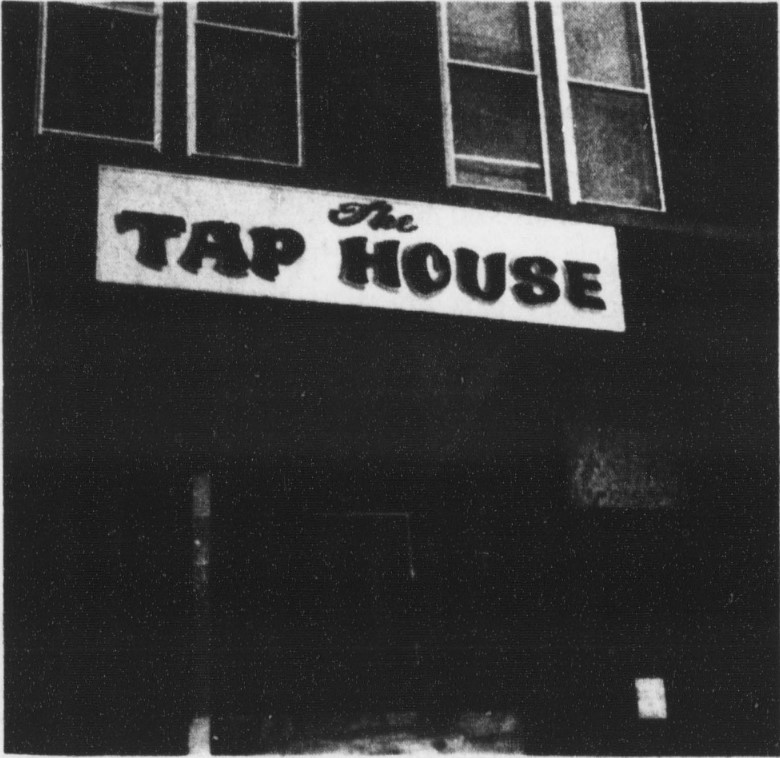
One of my favorite things to do was to hang out in Wilder Bowl, I had the best conversations just hanging out there. Someone would be walking out of King [Building] or Mudd [Center], like ‘Oh, yeah, I was just reading about this’ or ‘I just heard this in the lecture.’ … It was all secondary learning that I did from my peers. … In retrospect, what was really important was just having a large artist community. A third of these people were dedicated to art, and I think that’s kind of amazing. I think it bleeds over into everything else — there’s music all around. In fact, sometimes I wonder why Oberlin doesn’t lean into that. It seems to be leaning into this notion of getting [students] into prestigious jobs. … I think the culture there is unique, and I think that’s due to the history of Oberlin being on the Underground Railroad and how that has grown through the ages. Things that I saw at Oberlin in terms of social issues, LGBTQ issues, were way outside the mainstream when I was there but now are part of the mainstream. … I think that’s as much to do with the faculty laying the groundwork for critical thinking and the culture that’s embodied in the student’s that has been transmitted from one class to the next. Governance is just a structure, and the community under it will mold into that structure.
— Sung Kim, OC '89
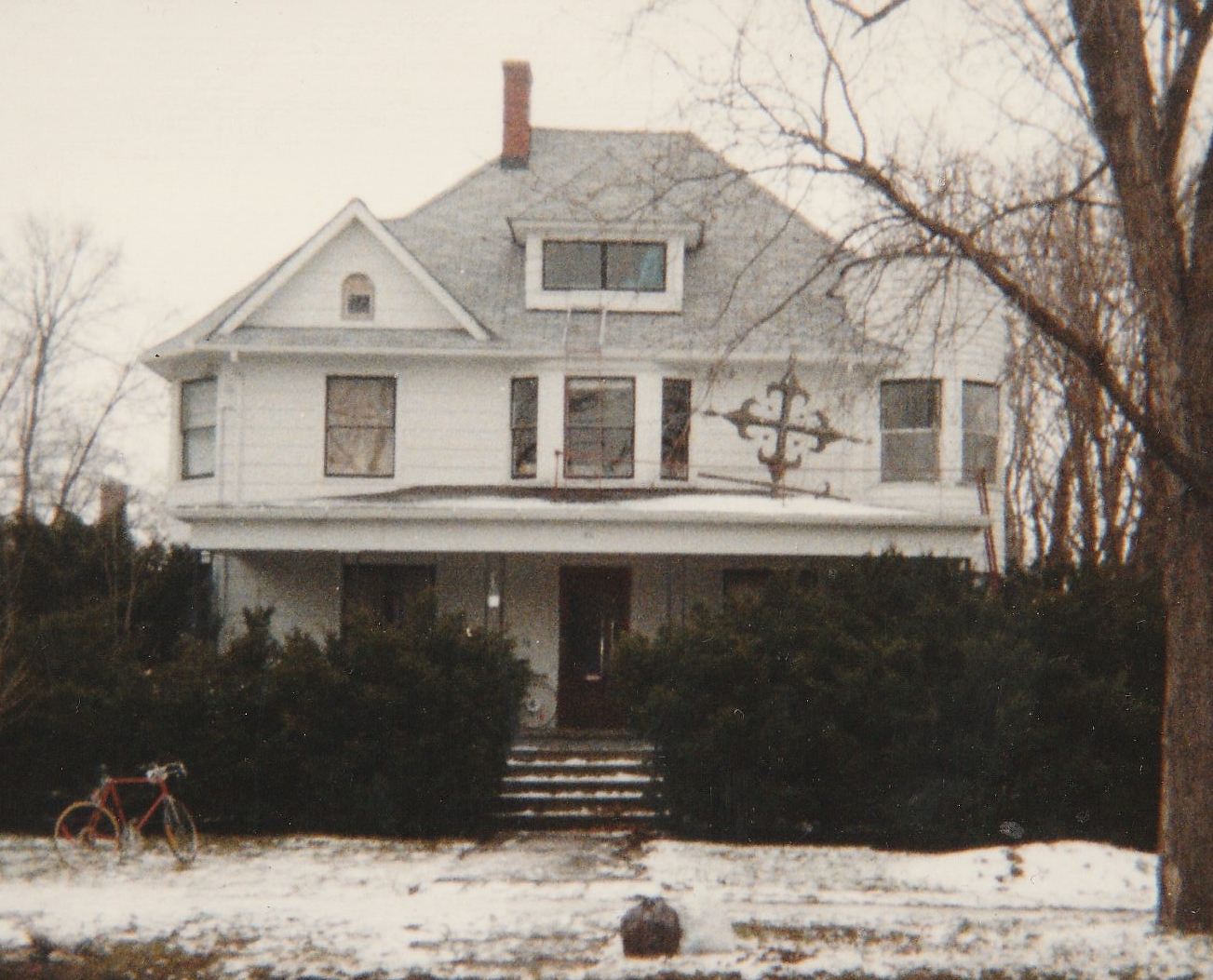
I’m not sure I have any spectacular Obie experiences, it really all was continuous growth. Probably my biggest takeaway was being open to new perspectives. That, I think, is driven by faculty, not trustees. There’s a reason why Oberlin dropped in the rankings, and this is now a vicious circle; it’s going to get worse before it gets better.
— Sung Kim, OC '89
I graduated in 2018 and majored in Latin language and literature and minored in Greek language and literature. I did classics stuff while I was in the Classics department, and I was very involved in OSCA — I served as President one year. … I was in Ballet Oberlin as well, because I grew up dancing. That was a nice way to continue it at Oberlin but in a low-stress, friendly, supportive environment. … I was also really involved in the Book Co-op. … My final semester, [SWAP] was in Harkness [Hall], and there was something growing from the walls, so it got shut down. We were supposed to get it back sooner, and then it just didn’t. … It was just a very cozy space with rugs and lots of places for sitting, and we always had snacks and stuff, so I would study there a lot and hang out. … One thing that comes to mind is on Fridays, it was TGI Fridays, we would just sit on the lawn of Wilder [Bowl]. I remember, especially when it was starting to get warm in the spring, sitting out there with friends and bringing food from our co-ops and having a snack, and just hanging out in the sun after the cold Oberlin winter. I remember that feeling very peaceful and exactly the community I think of when I think of Oberlin. … Similarly, when it would get warm, having our meals out on the Hark lawn was always really fun. I also remember so many nights coming back late from studying … if you would go down to the dining room to see if there was a tasty thing to grab as a late-night snack, there was always someone around to talk to you. … In general, moments like that, just remembering the things that became so routine.
— Tara Wells, OC '18
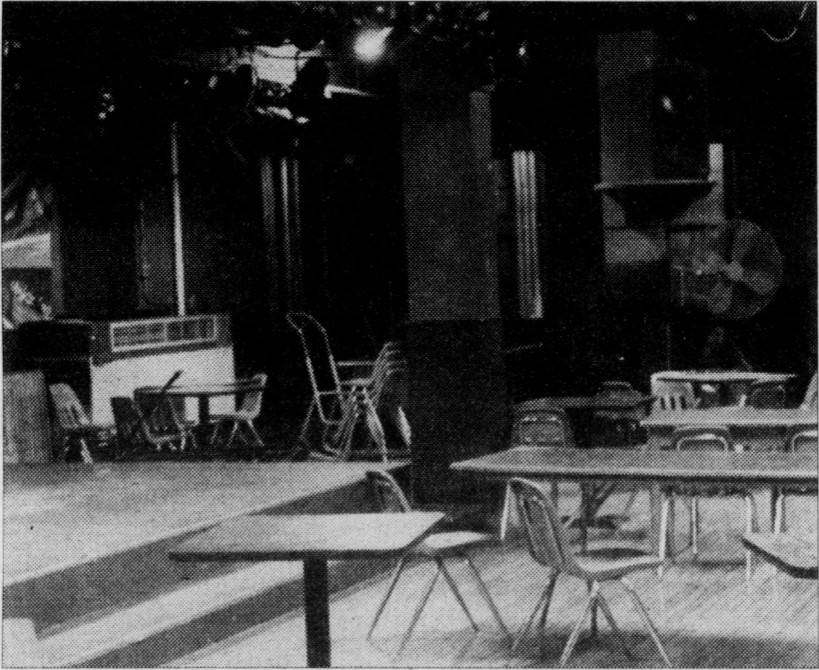
My older brother went to Oberlin, so I would visit and come to the co-op for a meal and thought the community seemed really inviting and supportive of one another. For our family, being low-income, being able to do the co-ops was a big part of what made college financially accessible for us at all. So when I decided to come to Oberlin, if I didn’t get into a co-op I didn’t know that I would actually be able to stay. … I spent my first semester in a dorm, because I was on the waitlist, but then did get [into Harkness].
— Tara Wells, OC '18
